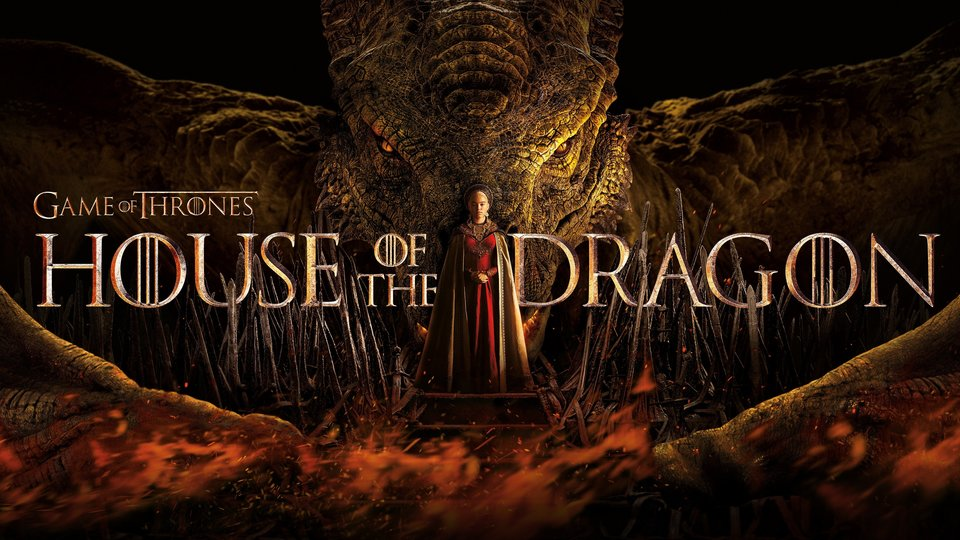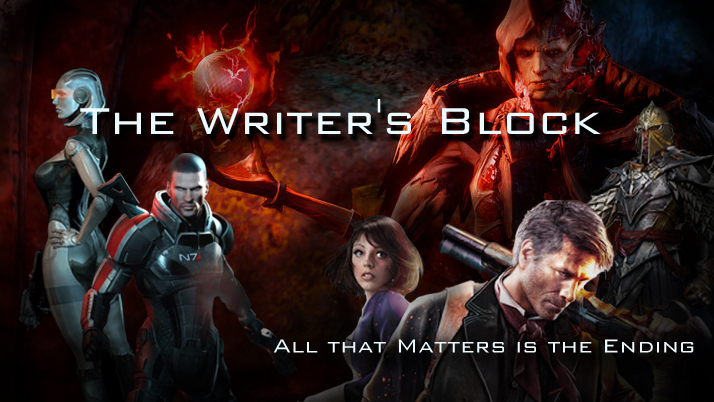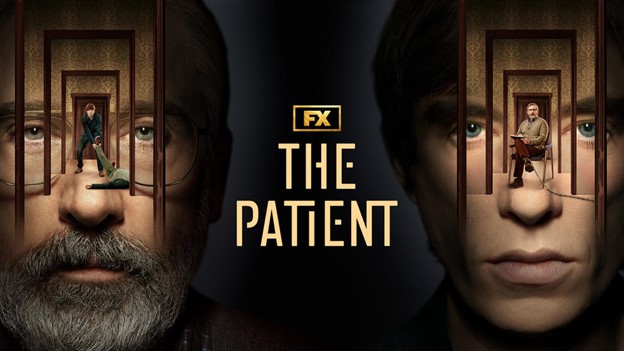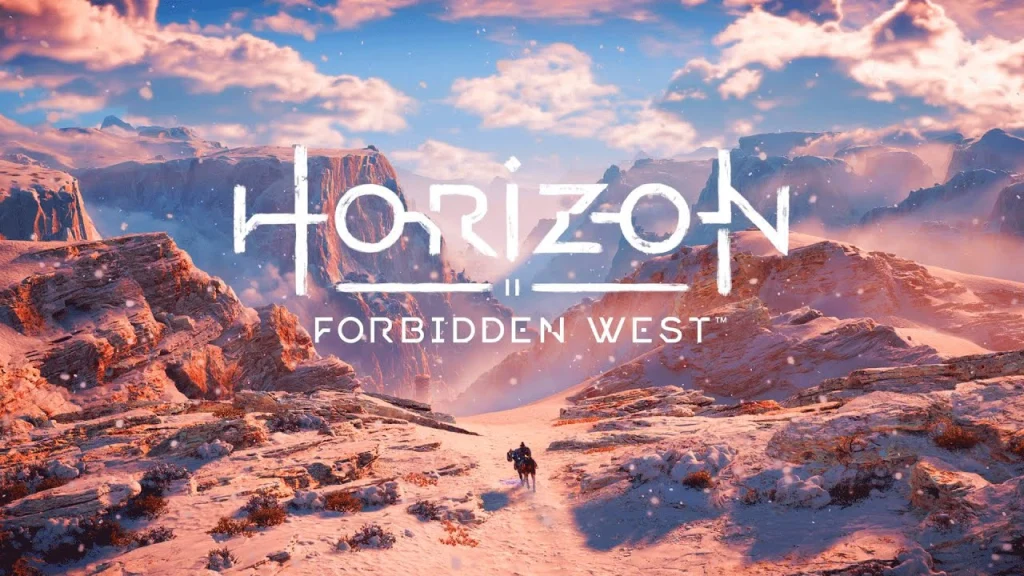I never intended to watch this show. Game of Thrones ended so badly that it completely destroyed any interest I had in the spinoffs. But a friend was watching it and told me I needed to see it. So with a huge sigh and roll of the eyes, I gave it a try.
And damn, I’m glad I did.
This show is fantastic. In some places it matches Game of Thrones best season, and in a few places, it even exceeds it’s predecessor. Yes you read that right, there was one scene in particular that moved me in a way that no episode of Game of Thrones ever did, and it’s worth watching just for that one scene.
It’s by no means perfect, but no work of art ever is.
House of the Dragon:

A Storytelling Review
House of the Dragon tells the story of the Targaryen civil war, two centuries prior to the events of Game of Thrones. While I’ve read A Song of Ice and Fire, I never read the prequel book this is based off of, so I had no knowledge of any of the characters going in. And in many ways I’m glad of that, I liked not knowing what was going to happen. What I was treated to was a great cast of characters, political intrigue that was believable, and amazing dialogue. The same thing that made me fall in love with the show. So let’s dive in and talk about what I loved about this show.
The Worldbuilding is Great

In my recent review of Rings of Power I talked about how the worldbuilding there was expositional, relying on the characters explaining to the audience what is happening. By contrast House of the Dragon does it’s worldbuilding exactly as it should; by letting the audience pick up the knowledge through character interactions. It starts off with a short (just over 2 minutes, versus 3 and a half in Rings of Power), expositional narration of where we are in the history of Westeros, the main players involved, and then let’s the story begin. It treats its audience with the respect it deserves, not treating them like idiots, and trusting that they’ll be able to pick up what’s happening as the narrative unfolds.
I went in knowing nothing of these characters, factions, or time period in the story, and just in that first episode I had all the information I needed. There’s a great scene in the opening episode that perfectly illustrates how to do good world building, and that’s just 7 minutes into the episode when Corlys is briefing the council on the threat posed by the Triarchy:
… the growing alliance between the Free Cities has taken to styling itself The Triarchy…
-Lord Corlys to the Small Council
At the same time that Corlys is saying this he quickly unfurls of a map of Westeros, introducing what this world looks like to the audience. Already we’ve been introduced to the Triarchy and the Free Cities, though neither will be mentioned again until the following episode, but it’s been introduced. They’ve also laid the groundwork that there’s potential for conflict with this new Triarchy, and so when the war breaks out several episodes later, it doesn’t come as a surprise. We’re not left asking, “who the heck are these guys?”
The scene then goes into Daemon’s absence from the council, and possible ideas for his replacement when he’s no longer the heir, since the king’s son is due to be born any day now. This establishes Daemon as a wildcard, reinforced by his later butchery, and the fact that for the moment succession seems secure… but how tenuous that security is.
Now the brilliance of this scene is that it comes across as just the everyday happenings of King Viserys court, and yet everything that’s conveyed here builds the story, the world, and the characters through brilliant dialogue that makes it all feel authentic. And that remains true throughout the series.
Whether the audience consciously realizes it or not, the dialogue is filled with details about the characters, the world, and the history of Westeros. The only complaint I have in this area is that I really wish they would lay off the whole “Song of Ice and Fire” prophesy, because the last thing this show needs to be doing is reminding us of what a horrible ending the original show had. Most of the audience knows how this story ends, there’s no real reason to foreshadow it.
Though speaking of foreshadowing, in the very first episode Viserys says something to Rhaenyra that brilliantly foreshadows the season finale:
The idea that we control the dragons is an illusion. They’re a power man should never have trifled with.
– Viserys to Rhaenyra

Game of Thrones had a bit of this when we saw Daenerys’ dragons rebel during their angsty teenage period while she was ruling in Meereen, going out and chomping some innocent children. Yet, other than that, we saw her dragons as fiercely loyal and easily controllable weapons of war, which always bothered me. So I love the introduction of the idea that these are wild animals, and their instincts can still override their training and bond with their riders. Like those who have chosen to live with bears, jaguars, wolves, and other wild animals… they’re never really tamed, and you live with them at your own peril.
Watching as both dragons lose control, losing themselves in their primal instincts, was both tragic and utterly believable. It also creates new possibilities, the Dragons are now unpredictable wildcards rather than simply extensions of their riders. Seeing the grief on Aemond’s face as he’s realized his mistake was palpable, and I can’t wait to see more of this. Speaking of Aemond…
The Characters Were Complex and Believable

Like Game of Thrones before it, nuanced characters that act and feel like normal human beings has been the hallmark of the show. Rhaenyra is a fiery duality. There is a kindness in her, and a wild untamable spirit that chafes at the demands of court, there’s a strong part of her that does not want to be on the throne. And yet there is also another part of her that wants that power, the respect it brings, and a certain part of her that wants it just because she thinks her father doesn’t want her to have it. Rhaenyra wants what she wants, and as Daemon teaches her, isn’t afraid to pursue it.
On the other end of the spectrum we get Alicent Hightower, who dedicates her entire life to duty and family, even when it makes her miserable. Alicent too, would have liked to have run away, and been free of the confines of court life. Knowing the back of her mind she would one day be married off to some old man to cement a political alliance. Yet she does so because she feels an overwhelming sense of duty to her father, and doesn’t want to disappoint him, reinforced by the social constructs of the age that tell her she has no choice, and she’s right. Rhaenyra is fortunate enough to be an heir to the throne, and has an easier time taking what she likes, consequences be damned. Were Alicent to attempt the same thing, her reputation would not survive the scandal.
The juxtaposition between the two women, as Rhaenyra has passionate sex for the first time while Alicent stares off into nothing as Viserys mindlessy ruts away like an animal, is one the most heartbreaking scenes in the show.

It’s these kinds of conflicting motives and emotions that create strong drama. Alicent’s father Otto is another fine example of this in action. Now I hated Otto, still do, I can’t wait until he gets his comeuppance (if he ever does.) But when he was first introduced, I thought he was too one-dimensional. I mean he was just Jafar without the parrot, blatantly manipulating the king to his own ends. His unquenchable ambition seemed just a little too disproportionate. And then we get a moment where he lays out his daughter’s situation to her.
If Rhaenyra is crowned queen, Alicent’s children could contest the throne, having a valid claim to it themselves. Otto correctly points out that historically, when this situation occurs, the other claimants to the throne are often exiled at best and executed at worst. Whether Alicent likes it or not, she is now stuck as an important piece on a chessboard she never wanted to be on. And if she doesn’t toughen up and get her act together, than she, and her children, will likely die.
And it’s the genuine fear in Otto’s voice, the deep overwhelming concern born of love, that brings a humanity to his character. Yes, he is still driven by the ambition of seeing his family assume the throne, but there’s another part of him that knows if this plan fails… everyone he loves will die.

I only have major complaints in this area. The first, and most major complaint, is the fact that most of the Hightower family seems a little too irredeemably evil and the Targaryen’s a little too noble. The Hightower family consists of a rapist usurper King, Alicent who threatened to cut a little boy’s eye out in a room full of witnesses, Aemond who is becoming Daemon 2.0, and Criston Cole, AKA the Worst Knight. Meanwhile, aside from Daemon, most of Rhaenyra’s faction are noble, upstanding people trying to do the right thing. Hell even Rhaenyra was thinking of accepting Alicent’s offer of peace, until her son’s death. Based on the absolute fury upon her face in the finale, however, perhaps we’ll see the dark side of the so-called Black Queen and this civil war won’t be quite such a conflict good versus evil as it is currently looking.
My second complaint is more minor and perhaps is impossible to achieve given the scope of the storytelling… but I really wish the dragons themselves were given some character. Dragons, and their deaths I imagine, will begin to play a major role in the story going forward. If we got the opportunity to get to know these dragons, their distinct personalities and appearances, those impending deaths might carry more weight.
Though nothing they do will ever come close to the impact of one character’s death.
Viserys

I hated Viserys when he was first introduced. He was weak, ineffectual, and prone to being manipulated by the people around him. At times it felt like he forgot he was king, and he was beholden to no one’s advice but his own. I was actually hoping he would die sooner, or be assassinated. And what I love about this, is that I felt like that because the show successfully puts you in Rhaenyra’s shoes, and much of story is seen from her perspective.
Through her eyes we see a man so desperate for a son that he has all relegated her to being a cupbearer at his small council meetings. So desperate for a son that he murders his wife, in the vain hope of saving the son she bears when the pregnancy goes badly. Then, without a son to crown heir, he resists declaring her his heir, and eventually only does so out of necessity. We watch as the members of his small council manipulates him to their whims, including Otto Hightower, his Hand of the King. Then he and Alicent Hightower have a son, and we wait for him to renounce Rhaenyra’s claim to the throne.
But he never does.

Visery’s story was a masterclass in character writing, not to mention superb acting. Who we are introduced to in that first episode, is not the man we mourn when he dies. The beautiful thing is that this is conveyed in a multitude of ways that add incredible depth to the character.
When we first meet Viserys, it’s through the eyes of others; his doting wife who loves him, a daughter who resents him, a brother who seeks to usurp him, and a small council that uses him to their own ends. And through this kaleidoscope of different perspectives we get an impression that he’s a weak, foolish man who should never have been king.
He betrays his wife, the one person he could truly rely on, in a vain effort to save his son just so he could keep his brother and daughter off the throne. We see him constantly frustrated by the demands of courts, bowing to the manipulations of Otto Hightower, seemingly blind to the man’s ambitions for the throne. At every turn he makes poor strategic decisions, angering the people he should be courting as allies, and welcoming in enemies as friends. And to be honest, I hated him. Hated his weakness and indecision.
And I love this kind of storytelling, where you’re lured into forming an opinion on a character, and then the writer slowly reveals how wrong you were.
Yes, what Viserys did to his wife was truly horrifying, but he was faced with an unthinkable situation. His wife was going to die, there was no way to save her, so he decided he would at least try to save the child. I wish he had consulted his wife’s wishes on that but… this is also a realistic take on how this situation would have unfolded. I can condemn him for what he did, but I can also understand it.
And he mourned his wife, and what he’d done to her, the rest of his life.
Seen through Rhaenyra’s eyes, Viserys does seem obsessed with having a son, and it does look like he’s desperate to find any excuse not to put his daughter on the throne. Up to and including putting Daemon, who would clearly be a mad king, on the throne rather than her. Yet what we first interpret as disdain for his daughter, and disgust for the idea of having a woman on the throne, is actually a deep sense of love and responsibility.
There’s one line of dialogue, again from that first episode:
“Daemon has no patience for the demands of court.”
Viserys to his Small Council

At face value this is a statement about Daemon, but at its core it’s a glimpse of Viserys’s character. Viserys understands the huge responsibility that has been placed upon his shoulders, that his every decision could lead to the deaths of thousands, if not tens of thousands of people. It also shows us that Viserys never wanted the throne, had it been his choice he might have willingly let Rhaenys take it, and he is clearly miserable sitting upon it. He is gentle, a romantic at heart, who does the right thing even if it’s not politically wise.
He couldn’t marry (Rhaenys’ daughter) because he couldn’t bring himself to marry a child, nor one so closely related to him. And though I think Alicent Hightower is only supposed to be in her mid-teens, her advances probably at least made him feel a little better about it.
He refused to execute or exile Daemon on multiple occasions, even though Daemon was a ruthless wildcard who almost always weakened his political position. Because Daemon was family, and there was nothing more important to him.
He’s the very man you’d want as a king, compassionate, composed, with an understanding of the weight responsibility that comes (or at least should come) with absolute power. Yet it’s those very traits that would make being king an absolute nightmare for Viserys. The stress of walking a tightrope, for decades, trying to keep his family from tearing itself to pieces. And he sees in Rhaenyra: himself.
She is also a gentle person at heart, and though she feels resentment for her father not wanting her on the throne, the way she chafes at the trappings and etiquette of court, and its backroom politicking, tells me she never really wanted the throne either. The last thing Viserys wanted, was to put his beloved daughter on the throne, to have her suffer an even worse fate. To be the first Queen of Westeros would require her to be ruthless and cunning, only profound strength would maintain her grip on a land that stubbornly refuses to recognize a woman’s strength. Every day would be a battle. To put her on the throne would probably destroy everything she was.

But when Viserys is finally forced to put her on the throne to secure the succession, and at least try to prevent a civil war from erupting on his death, he supports her unwaveringly. Even after the the birth of his sons, he refuses to name them as his heir, because he made her a promise never to replace her.
I say without shame I cried as I watched Viserys hobble his way to the throne. Not because it was a feat of incredible strength and endurance, though it was. Not because it was so satisfying to see Otto and Alicent’s plans foiled, though it was.
But because it was such an act of pure, unselfish love. He loved his daughter so much that he was willing to endure unspeakable agony; forcing his withered, atrophied muscles to walk on splintering, deformed bones. All to make sure the promise he made to her daughter, that he would never replace her, was fulfilled. And perhaps finally prove to her, that he had always, and would always, love her.
Watching that march to the throne was absolutely devastating, and was the result of the finest of writing. The moment he stands up in the throne room, removes his mask, and pleads for his family to set aside their petty ambitions and grievances, again was a moment of pure beauty. And the tragedy that the kids can’t help but act like kids, completely derailing what he had almost accomplished, makes it more poignant.
And the final indignity, that Viserys’ own failing body and mind betray him, unwittingly causing the very civil war he’d spent his whole life trying to prevent.

I wept again as Viserys, in what I’ve read was Paddy Considine’s own improvisation, smiled one last time and called out to his beloved wife whom he’d never stopped loving. A fitting end for a truly amazing character.
Whether the show can continue in strength without this amazing actor and character in the story, I don’t know. But I’m certainly rooting for it!





Leave a comment